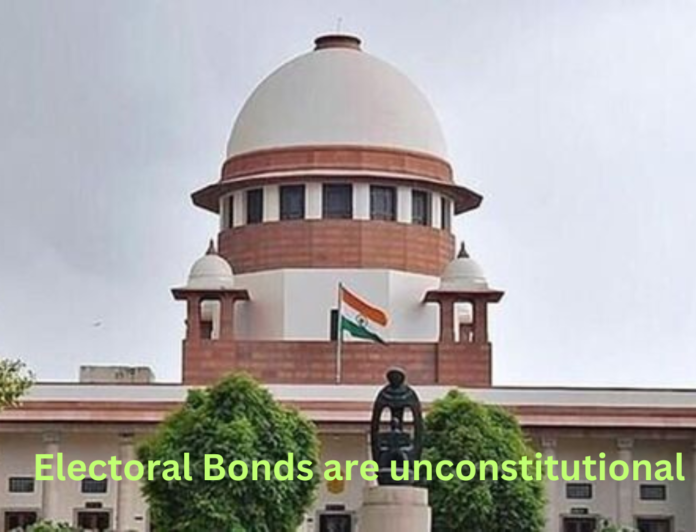The Supreme Court unanimously strikes down the Electoral Bonds Scheme, terms it ‘unconstitutional’. The electoral bonds scheme was brought in 2018 as an alternative to cash donations made to political parties to bring transparency in political funding.
The Chief Justice of India DY Chandrachud said that poll bonds are violative of fundamental rights and they are not the only way to curb black money.
The important remarks by Supreme Court on electoral bonds are as follows:
– Electoral bonds scheme has to be struck down as unconstitutional. It violates the right to information of citizens, about possible quid pro quo.
– The issuing bank shall forthwith stop the issue of electoral bonds. The State Bank of India shall furnish the details of donations through electoral bonds and the details of the political parties which received the contributions.
– Financial contributions to political parties are made for two parties – for support to political party, or contribution may be way of quid pro quo.
– Not all political contributions are made with the intent to alter public policy. Students, daily wagers etc also contribute. To not grant umbrella of privacy to political contributions only because some contributions are made for other purposes is not impermissible.
– A company has more graver influence on the political process than contributions by individuals. Contributions by companies are purely business transactions. Amendment to Section 182 Companies Act is manifestly arbitrary for treating companies and individuals alike.
– Electoral bonds scheme is not the only scheme to curb black money. There are other alternatives.
– There are two opinions, one by myself (Justice Chandrachud) and another by Justice Sanjiv Khanna. Both arrive at the same conclusion. There is a slight variance in the reasoning.
WHAT ARE ELECTORAL BONDS
In an effort to enhance transparency in political fundraising, the government introduced a program on January 2, 2018, aimed at providing an alternative to monetary contributions to political parties.
Electoral bonds are akin to promissory notes or bearer bonds and can be purchased by Indian citizens, businesses, associations, or corporations established in India. These bonds are specifically designed to facilitate financial contributions to political parties.
Available in denominations of Rs 1,000, Rs 10,000, Rs 1 lakh, Rs 10 lakh, and Rs 1 crore, electoral bonds can be acquired through KYC-compliant accounts for the purpose of donating to political parties. There exists a deadline for political parties to encash these bonds.
Notably, electoral bonds maintain anonymity as they do not include the donor’s name or other identifying details on the document. Moreover, there is no limit to the number of bonds one can purchase.


